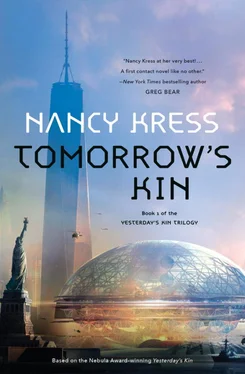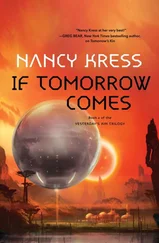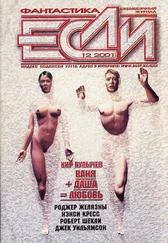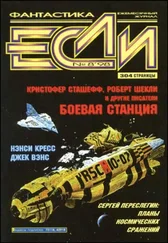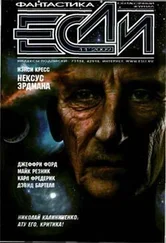Noah’s hands felt clammy. All those brief, temporary lives on sugarcane, each one shed like a snakeskin when the drug wore off. No, not snakeskin; that wasn’t the right analogy. More like breadcrumbs tossed by Hansel and Gretel, starting in hope but vanishing before they could lead anywhere. The man with the dirty ponytail wasn’t the only homeless one.
Noah said, “I want to know who and what you are.”
The ceiling above Smith said, “Come with me to a genuine celebration.”
* * *
A circular room, very small. Noah and Smith faced each other. The ceiling said, “This is an airlock. Beyond this space, the environment will be ours, not yours. It is not very different, but you are not used to our microbes and so must wear the energy suit. It filters air, but you may have some trouble breathing at first because the oxygen content of World is like Earth’s at an altitude of twelve-thousand feet. If you feel nausea in the airlock, where we will stay for a few minutes, you may go back. The light will seem dim to you, the smells strange, and the gravity less than you are accustomed to by one-tenth. There are no built-in translators beyond this point, and we will speak our own language, so you will not be able to talk to us. Are you sure you wish to come?”
“Yes,” Noah said.
“Is there anything you wish to say before you join your birthright clan?”
Noah said, “What is your name?”
Smith smiled. He made a noise that sounded like a trilled version of “meehao,” with a click on the end.
Noah imitated it.
Smith said, in trilling English decorated with a click, “Brother mine.”
* * *
Marianne was not present at the meeting between Elizabeth and Smith, but Elizabeth came to see her afterward. Marianne and Max were bent over the computer, trying to account for what was a mitochondrial anomaly or a sample contamination or a lab error or a program glitch. Or maybe something else entirely. Marianne straightened and said, “Elizabeth! How nice to—”
“You have to talk to him,” Elizabeth demanded. “The man’s an idiot!”
Marianne glanced at the security officer who had escorted Elizabeth to the lab. He nodded and went outside. Max said, “I’ll just… uh… this can wait.” He practically bolted, a male fleeing mother-daughter drama. Evan was getting some much-needed sleep; Gina had gone ashore to Brooklyn to see her parents for the first time in weeks.
“I assume,” Marianne said, “you mean Ambassador Smith.”
“I do. Does he know what’s going on in New York? Does he even care?”
“What’s going on in New York?”
Elizabeth instantly turned professional, calmer but no less intense. “We are less than nine months from passing through the spore cloud.”
At least, Marianne thought, she now accepts that much.
“In the last month alone, the five boroughs have had triple the usual rate of arsons, ten demonstrations with city permit of which three turned violent, twenty-three homicides, and one mass religious suicide at the Church of the Next Step Forward in Tribeca. Wall Street has plunged. The Federal Reserve Bank on Liberty Street was occupied from Tuesday night until Thursday dawn by terrorists. Upstate, the governor’s mansion has been attacked, unsuccessfully. The same thing is happening everywhere else. Parts of Beijing have been on fire for a week now. Thirty-six percent of Americans believe the Denebs brought the spore cloud with them, despite what astronomers say. If the ambassador gave us the energy shield, that might help sway the numbers in their favor. Don’t you think the president and the UN have said all this to Smith?”
“I have no idea what the president and the UN have said, and neither do you.”
“Mom—”
“Elizabeth, do you suppose that if what you just said is true and the ambassador said no to the president, that my intervention would do any good?”
“I don’t know. You scientists stick together.”
Long ago, Marianne had observed the many different ways people responded to unthinkable catastrophe. Some panicked. Some bargained. Some joked. Some denied. Some blamed. Some destroyed. Some prayed. Some drank. Some thrilled, as if they had secretly awaited such drama their entire lives. Evidently, nothing had changed.
The people aboard the Embassy met the unthinkable with work, and then more work. Elizabeth was right that the artificial island had become its own self-contained, self-referential universe, every moment devoted to the search for something, anything, to counteract the effect of the spore cloud on mammalian brains. The Denebs, understanding how good hackers could be, blocked all Internet, television, and radio from the Embassy . Outside news came from newspapers or letters, both dying media, brought in the twice-daily mail sack and by the vendors and scientists and diplomats who came and went. Marianne had not paid attention.
She said to her enraged daughter, “The Denebs are not going to give you their energy shield.”
“We cannot protect the UN without it. Let alone the rest of the harbor area.”
“Then send all the UN ambassadors and translators home, because it’s not going to happen. I’m sorry, but it’s not.”
“You’re not sorry. You’re on their side.”
“It isn’t a question of sides. In the wrong hands, those shields—”
“Law enforcement is the right hands!”
“Elizabeth, we’ve been over and over this. Let’s not do it again. You know I have no power to get you an energy shield, and I haven’t seen you in so long. Let’s not quarrel.” Marianne heard the pleading note in her own voice. When, in the long and complicated road of parenthood, had she started courting her daughter’s agreement, instead of the other way around?
“Okay, okay . How are you, Mom?”
“Overworked and harried. How are you?”
“Overworked and harried.” A reluctant half smile. “I can’t stay long. How about a tour?”
“Sure. This is my lab.”
“I meant of the Embassy . I’ve never been inside before, you know, and your ambassador”—somehow Smith had become Marianne’s special burden—“just met with me in a room by the submarine bay. Can I see more? Or are you lab types kept close to your cages?”
The challenge, intended or not, worked. Marianne showed Elizabeth all over the Terran part of the Embassy, accompanied by a security officer whom Elizabeth ignored. Her eyes darted everywhere, noted everything. Finally she said, “Where do the Denebs live?”
“Behind these doors here. No one has ever been in there.”
“Interesting. It’s pretty close to the high-risk labs. And where is Noah?”
Yesterday’s bitter scene with Noah, when he’d been so angry because she’d never told him he was adopted, still felt like an open wound. Marianne didn’t want to admit to Elizabeth that she didn’t know where he’d gone. “He stays in the Terran visitors’ quarters,” she said, hoping there was such a place.
Elizabeth nodded. “I have to report back. Thanks for the Cook’s tour, Mom.”
Harrison Rice came around the corner. Marianne said, “Just a minute—here is someone I’d like you to meet.” She made the introductions. Harrison was a big, bluff Canadian who looked more like a truck driver who hunted moose than like a Nobel Prize–winner in immunology. In his fifties, still strong as a mountain, he had worked with Ebola, Marburg, Lassa fever, and Nipah, both in the field and in the lab. He exchanged pleasantries in his low-key way, but Elizabeth seemed distracted. Her eyes kept darting around the Embassy —looking for aliens? None appeared.
At the submarine bay, Marianne wanted to hug her daughter, but Elizabeth didn’t appreciate hugs. Memory stabbed Marianne: a tiny Elizabeth, five years old, lips set as she walked for the first time toward the school bus she must board alone. It all went by so fast, and when the spore cloud hit, not even memory would be left.
Читать дальше
